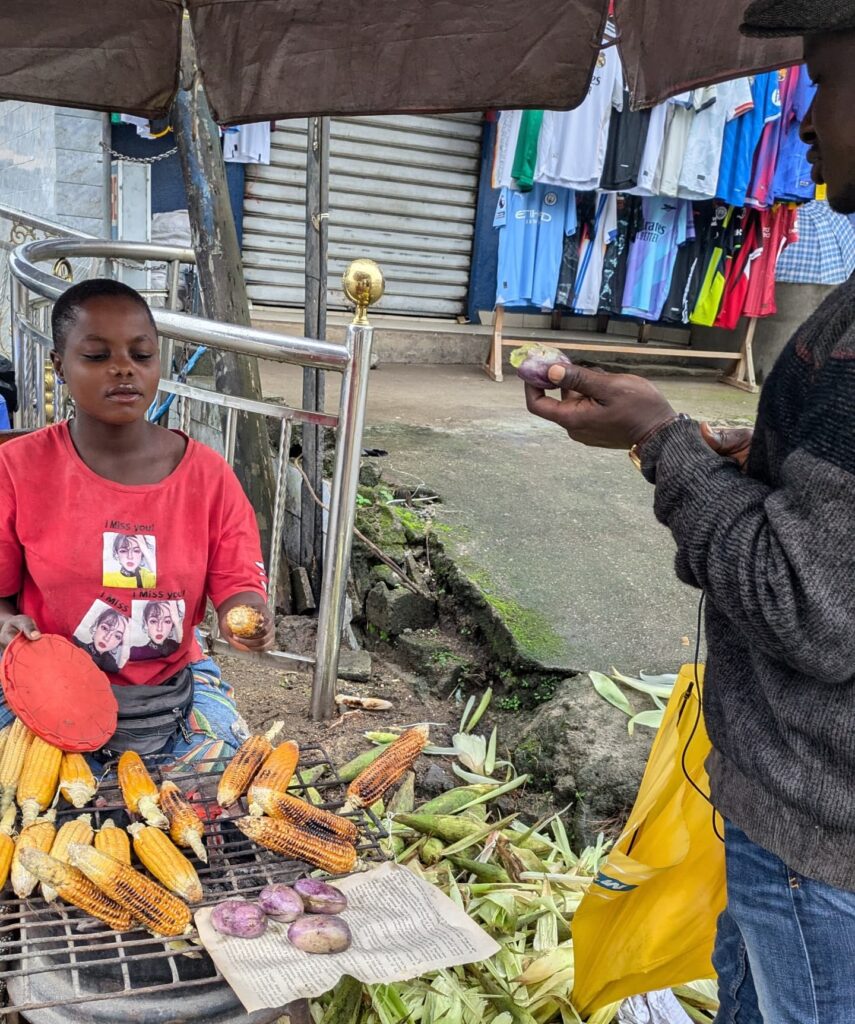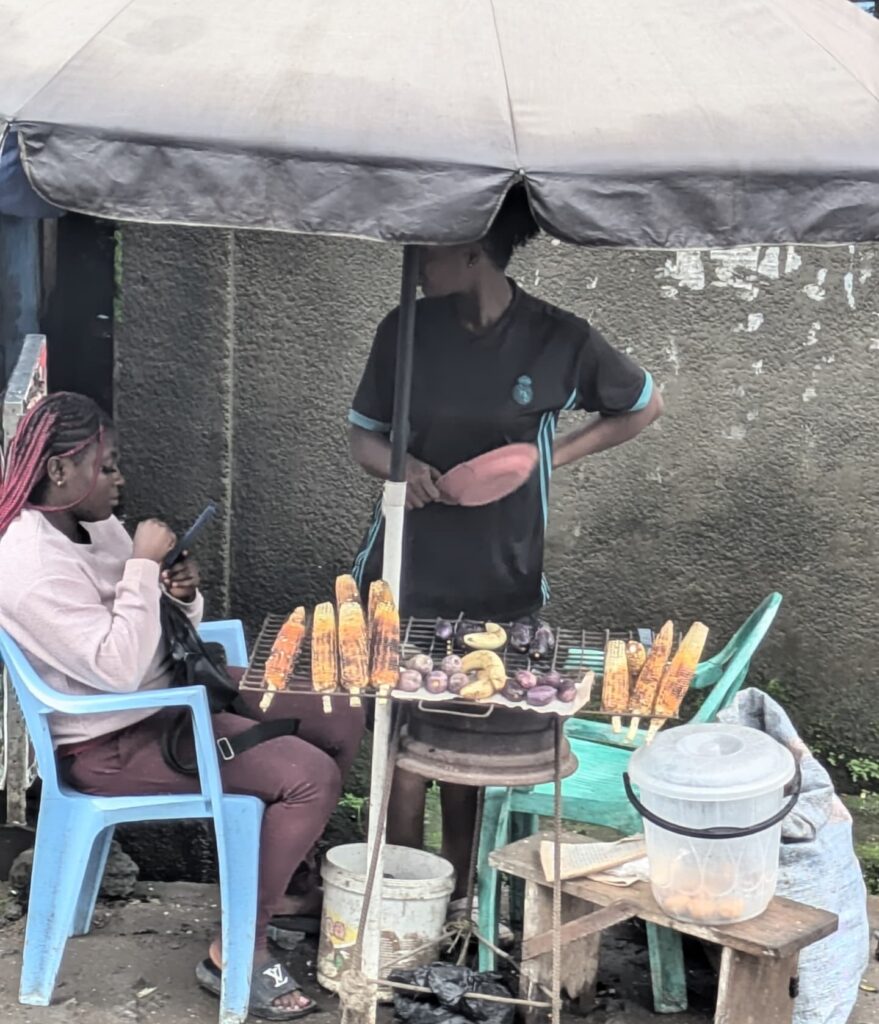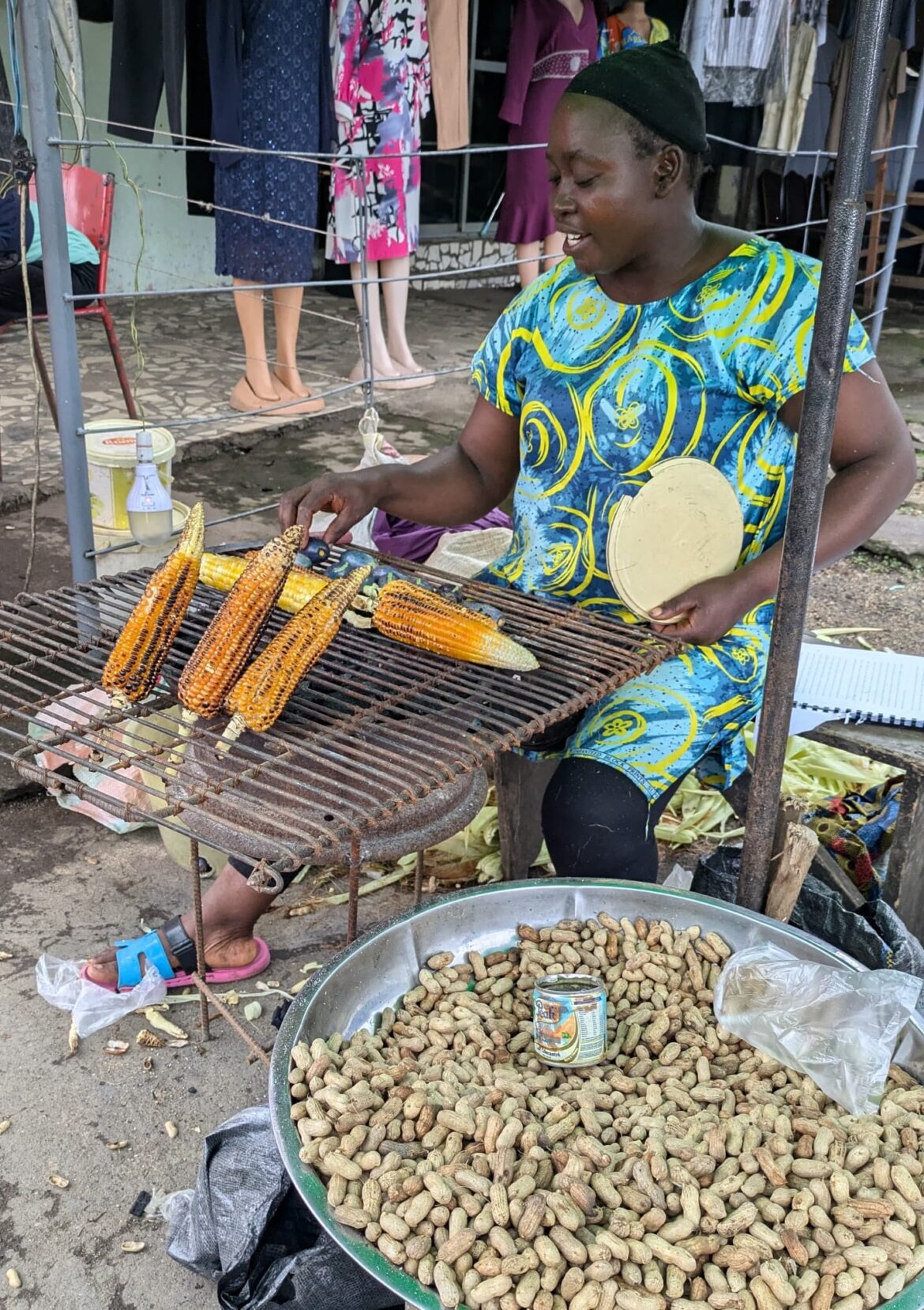As the harvest season intensifies in Buea, Cameroon’s Southwest Region, fast food vendors are turning abundant local produce into sustainable income. By leveraging a combination of fresh, seasonal ingredients and modern technology, they are not just selling food – they are building businesses and securing their families’ futures.
From May to September, a vibrant ecosystem of local fast-food businesses emerges, marked by the smoky scent of hot charcoal and the sight of vendors under wide umbrellas. They sell products like roasted corn, plums, and boiled groundnuts. Vendors like Mami Namondo, known for her roasted corn at Bonduma-Gate, have found a niche in this seasonal trade.
Many vendors either grow their own crops or source them directly from local farms. This direct-from-the-farm approach allows them to secure their inventory without competing with household consumers at the market. “In seasons like this, when I didn’t grow crops, I depend solely on farmers for corn to sell,” Mami Namondo explains. “When the produce is ready, farmers invite corn retailers to their farms to harvest and select desired sizes for sale. This saves us the stress, while giving me ample time to prepare and begin roasting corn at noon,” Mami Namondo said.

According to Mami Namondo, this business model is highly profitable. A 100-kilogram bag of fresh corn, for example, can cost between 20,000 and 25,000 FCFA to be sold within two days. By selling individual roasted cobs for 100 to 300 FCFA, vendors can achieve an 80-100 percent profit margin on their sales.
To boost sales and customer satisfaction, vendors often offer a variety of complementary items. Roasted plums and boiled fresh groundnuts are popular additions. Sally, a vendor at the UB Junction, has also added roasted half-ripe plantains to her merchandise. She explains that this strategy has a significant financial impact.
“A combination of these earns me a 100 percent profit, with a minimum weekly income of 30,000 FCFA,” Sally says. “This will help me purchase my school needs, raise my GCE Advanced level registration fee, and support my parents to sponsor my two younger siblings in primary and secondary school.”
While many of these businesses rely on self-advertisement and word-of-mouth, a new wave of tech-savvy vendors is using social media to expand their reach. Mami Brightly, a corn vendor at Checkpoint, Molyko Buea, credits her daughter with helping her embrace this digital shift.
“My daughter always posts my roasted corn business’ flyer on her WhatsApp and TikTok accounts for people to place their orders,” Mami Brightly shares. A pack of three roasted plantains or corn and three plums is sold for 1,000 FCFA, with an additional delivery fee of 500 to 1,000 FCFA depending on the client’s location.
“Relative to my former days of traditional sales, digital branding skyrockets my profit margin and enables me to earn more income while gaining more clients and big orders,” she says. This success has allowed her to establish branches at other strategic locations, including UB Junction, Mile 17, and Muea Market.

The harvest season is often characterised by excitement from consumers. “I always look forward to the harvest season because I love roasted corn with plums. It’s a taste of home. I have been a regular customer of Mami Namondo for years. This season, I started ordering through WhatsApp from her new location and it’s so convenient. The food is always fresh and the delivery is quick. It’s great to see these vendors doing so well,” Wole Kevin, a consumer in Buea said.
Despite challenges like unpredictable weather and demanding clients, vendors remain focused on customer satisfaction. “The client is always right. So, often, I focus on satisfying their demands in order to get my product purchased,” Mami Namondo says smiling.
As the harvest season draws to a close, she is already planning for the future. “I am preparing my farm for the August planting season. This will ensure my business’ continuity and empower me financially to contribute to my family’s sustainable development and welfare, while curbing my economic dependence on my spouse for survival.”
This blend of traditional farming, entrepreneurial spirit, and technological innovation shows that in Buea, the harvest season is not just about food, it’s a foundation for economic independence and community growth.
By Efuetji Mary Nkemngong

